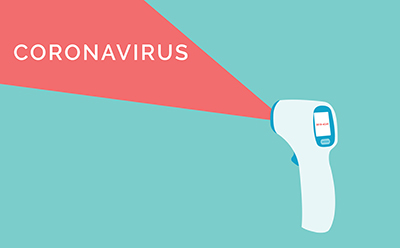Employers are accustomed to resisting discrimination in the workplace during typical times, but these are not typical times. The rapid spread of the COVID-19-causing coronavirus has led employers to focus on other priorities.
But to keep diversity efforts on track, employers need to be aware of the kinds of biases the virus may unleash, and they must make sure the pandemic doesn’t become an excuse for getting lax in their treatment of a diverse workforce. Despite all the virus-related distractions, employers must keep antidiscrimination laws in mind, according to attorneys who focus on employment matters.
Race, National Origin Discrimination
“Specifically, employers must not discriminate based on protected classes, most prominently in the case of coronavirus, race, color, or country of national origin,” Julie S. Lucht and Sarah E. Flotte, attorneys at Perkins Coie LLP in Seattle, Washington, wrote in an article for the April issue of the West Employment Law Letter.
Since the virus first hit areas in China, people from Asia and those of Asian descent have, at times, been targets for discrimination and harassment. Such incidents are unlawful under Title VII of the Civil Rights Act of 1964.
Janet Dhillon, chair of the Equal Employment Opportunity Commission (EEOC), issued a statement soon after reports surfaced of COVID-19-related mistreatment in the workplace.
“Amidst the challenges we are all facing during these uncertain times, the antidiscrimination laws the EEOC enforces are as vital as ever,” she said. She also urged both employers and employees to “be mindful of instances of harassment, intimidation, or discrimination in the workplace and to take action to prevent or correct this behavior.”
The EEOC also has posted a webinar to address questions related to how to respond to the pandemic in light of federal employment nondiscrimination laws.
Disability Discrimination Threat
In addition to race and national origin discrimination, the pandemic puts people with disabilities at greater risk of discrimination. The federal Americans with Disabilities Act (ADA) and similar state and local laws protect employees who are disabled or perceived as disabled because they exhibit symptoms of the virus, Lucht and Flotte said in their article.
The ADA, which covers employers with at least 15 employees, and similar laws prohibit employers from requiring medical examinations unless an employee poses a “direct threat” or the exam is otherwise job-related and consistent with business necessity. That’s a high bar to meet, but temperature checks, which are considered medical exams under the ADA, have become more common during the pandemic.
The EEOC updated its guidance in mid-March to help employers understand how COVID-19 affects the ADA. The guidance points out that although ADA rules still apply, they don’t interfere with or prevent employers from following guidance from the federal Centers for Disease Control and Prevention (CDC).
Specifically, the guidance says that measuring an employee’s temperature constitutes a medical examination, but “because the CDC and state/local health authorities have acknowledged community spread of COVID-19 and issued attendant precautions, employers may measure employees’ body temperature,” the guidance says. It also reminds employers that some people with COVID-19 don’t have a fever.
In addition to screening employees, the law allows employers to screen applicants for COVID-19 symptoms. Also, the law allows employers to delay the start date of a new hire who has COVID-19 or its symptoms, as CDC guidance says such a person should not be in the workplace. Likewise, an employer can withdraw a job offer to an applicant who is needed to start immediately if the applicant has COVID-19 or its symptoms.
The EEOC’s updated guidance also outlines how much information an employer can request from an employee who calls in sick. While the pandemic is going on, the guidance says ADA-covered employers may ask employees who call in sick if they are experiencing symptoms of the virus, such as fever, chills, cough, shortness of breath, or sore throat. It also notes that such information must be kept as a confidential medical record in compliance with the ADA.
During the pandemic, employers may find they’re receiving more requests for reasonable accommodations, the EEOC guidance says. “Although employers and employees should address these requests as soon as possible, the extraordinary circumstances of the COVID-19 pandemic may result in delay in discussing requests and in providing accommodation where warranted,” the guidance states. “Employers and employees are encouraged to use interim solutions to enable employees to keep working as much as possible.”

